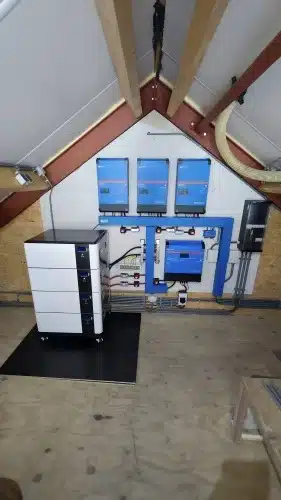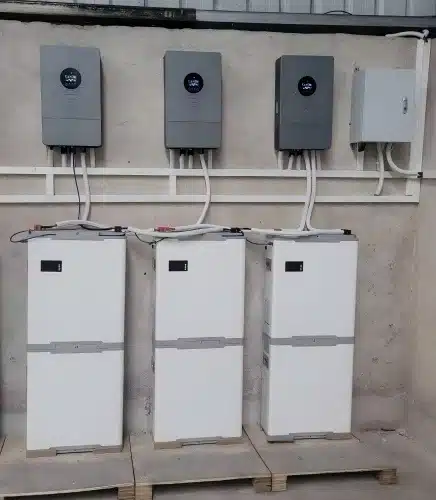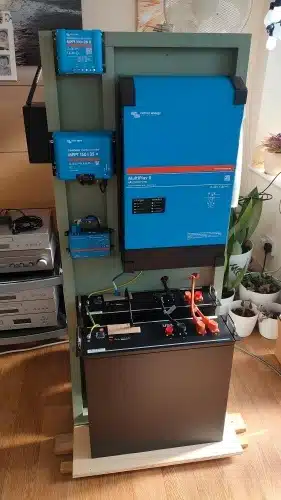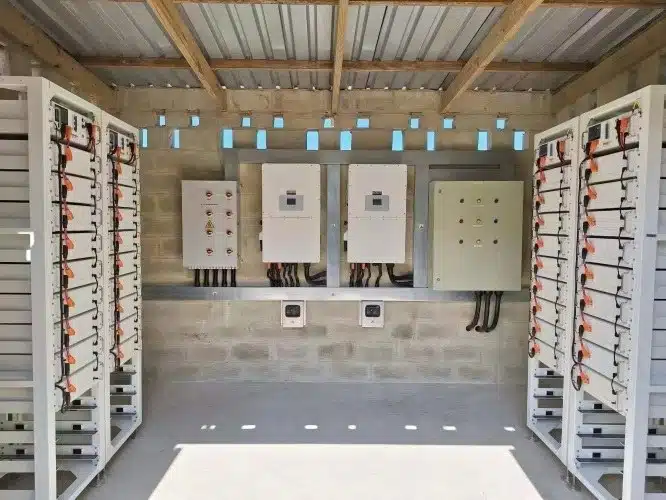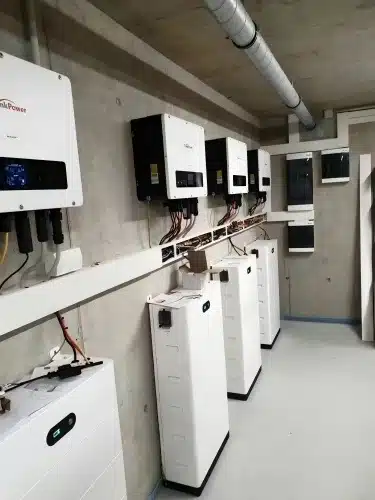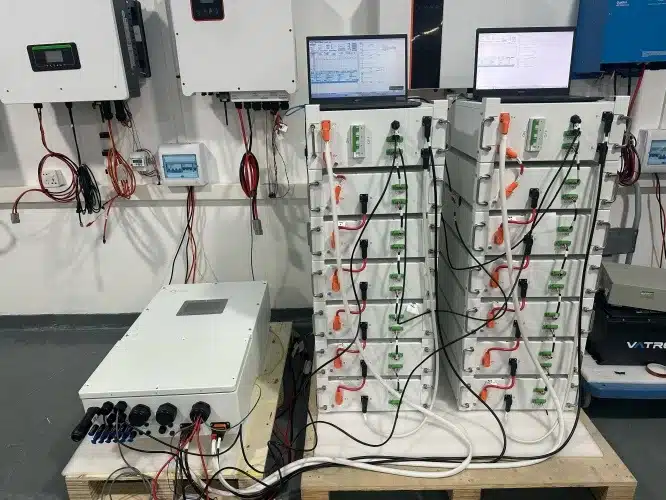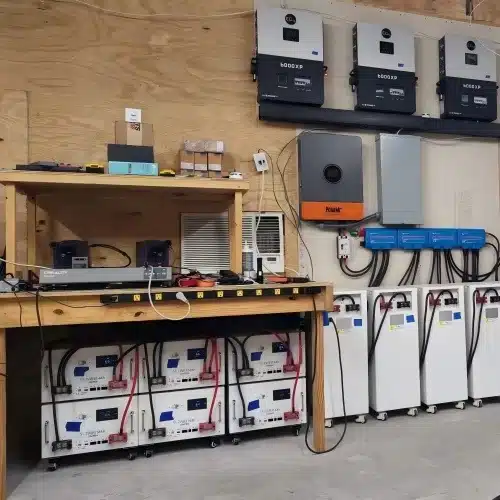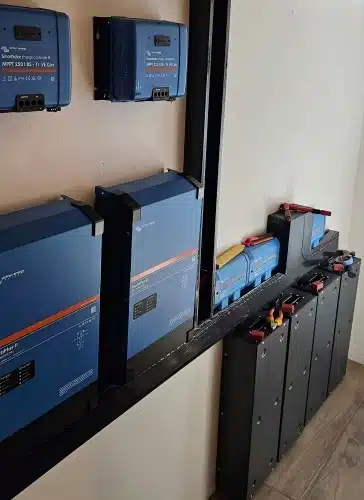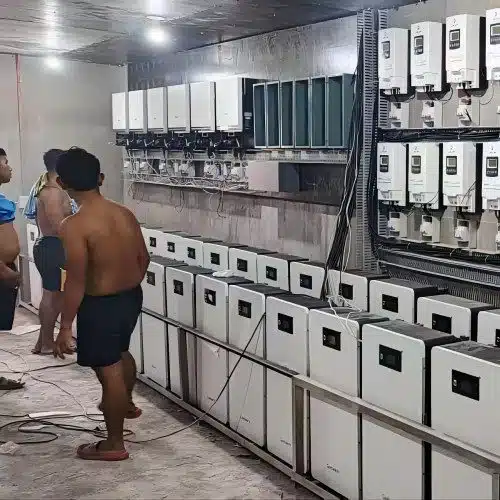
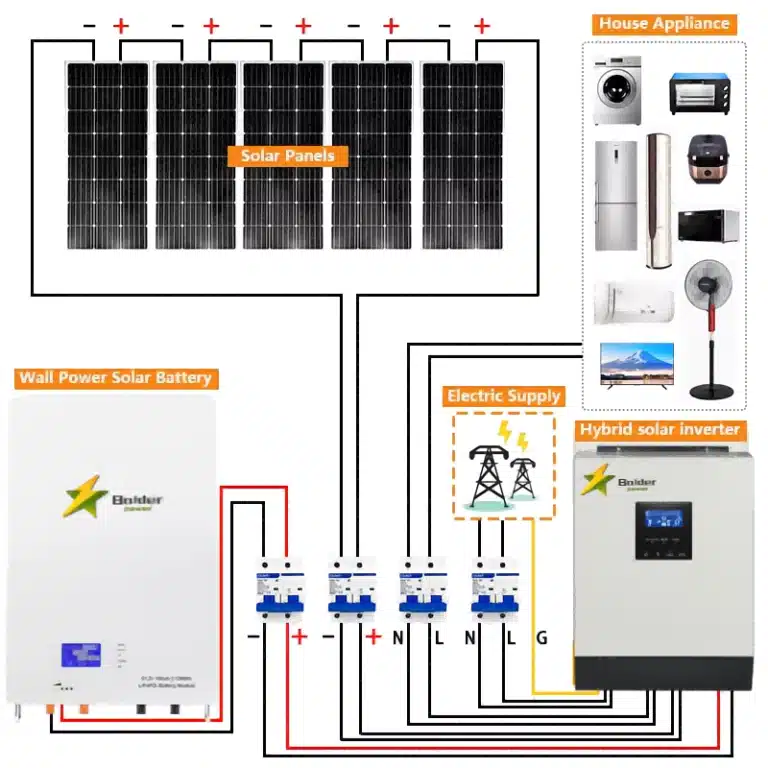
Home Energy Storage Battery
At Balder Power, we provide advanced home energy storage systems designed to enhance efficiency, reliability, and sustainability. Our products utilize LiFePO4 technology, offering safe and long-lasting solutions for residential energy storage.
We offer a variety of home energy storage systems battery to meet different needs:
- Wall Mounted LiFePO4 Battery
- Stackable LiFePO4 Battery
- Server Rack LiFePO4 ESS Battery
- Lead Acid Replacement Battery
- All-In-One ESS
Each solution is tailored to optimize energy storage, provide reliable backup power, and seamlessly integrate with renewable energy sources like solar.
Transform Energy Generation with Lithium Batteries
As a leading manufacturer and supplier of lithium batteries, Balder Power has been pioneering the shift towards renewable energy. Over the years, we’ve provided high-performance, cost-effective solar lithium battery solutions for both residential and commercial energy storage needs.
-
Wall Mounted Solar Home LiFePO4 Battery Backup
-
Stackable LiFePO4 Battery
-
Server Rack LiFePO4 ESS Battery
-
All-In-One ESS Battery
-
Lead Acid Replacement Battery
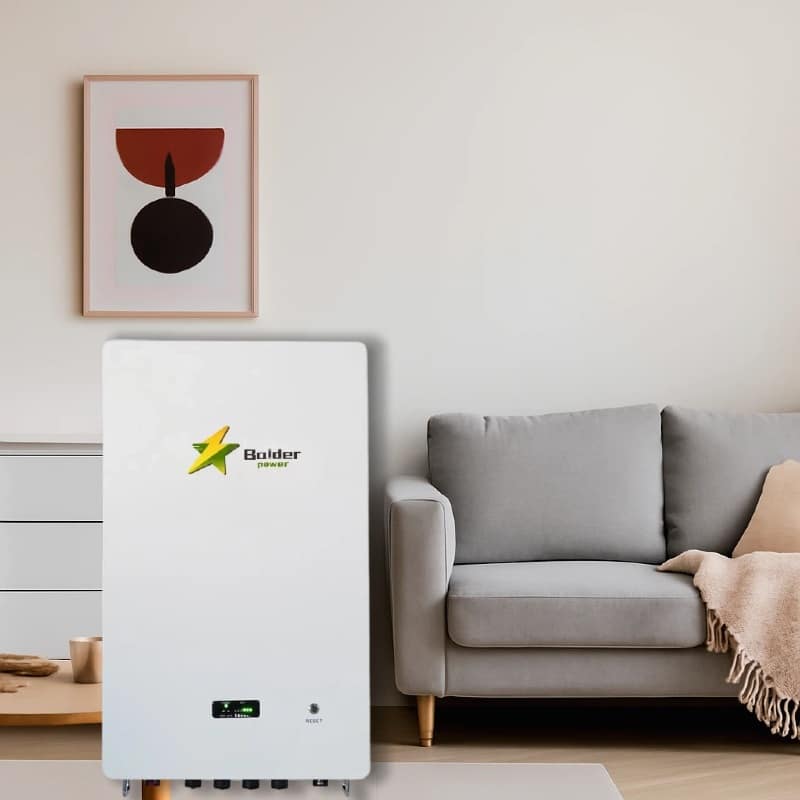
Balder Power Wall Mounted LiFePO4 Battery delivers high-efficiency energy storage for residential and commercial applications. Built with Grade-A prismatic cells, it ensures 6,000+ cycles at 80% DOD and a 10-year lifespan.
Designed for easy wall installation and modular scalability, each 5 kWh unit supports parallel expansion up to 76.5 kWh. Fully compatible with leading inverter brands, it’s an ideal solution for solar ESS integrators, installers, and distributors seeking reliable, compact power storage.
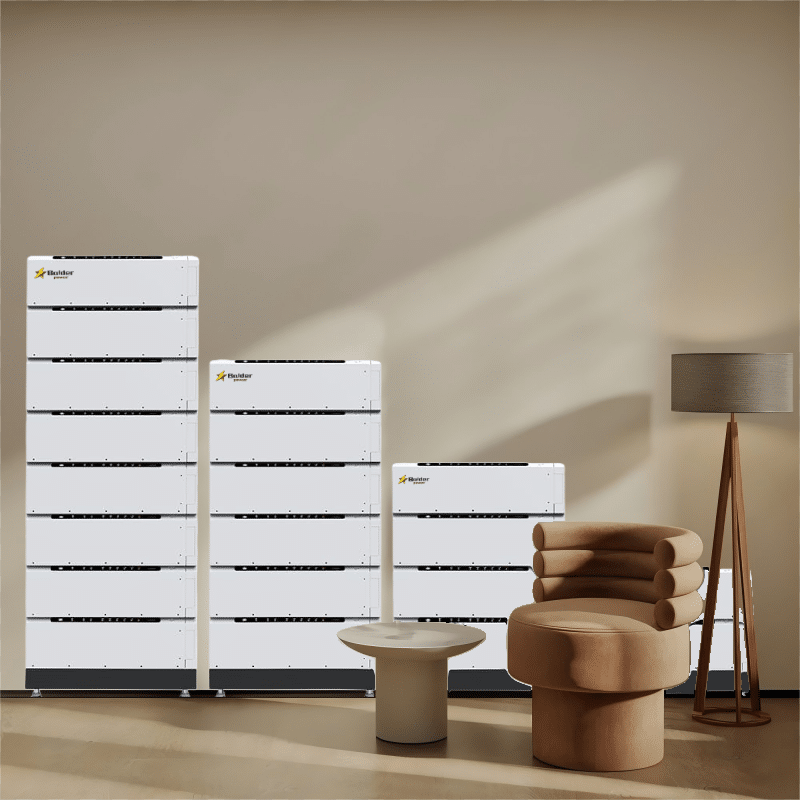
Balder Power Stackable LiFePO4 Battery offers high energy density, reliable performance, and modular flexibility for residential, commercial, and industrial use.
Compatible with major inverter brands like SMA, Victron, Growatt, Deye, and Pylontech, it supports up to 30 units in parallel for capacities up to 150kWh.
Available in wall-mounted, rack-mounted, or stackable installations, it includes Bluetooth monitoring, DC protection, and a 5-year warranty, making it perfect for solar, RV, marine, and off-grid systems.
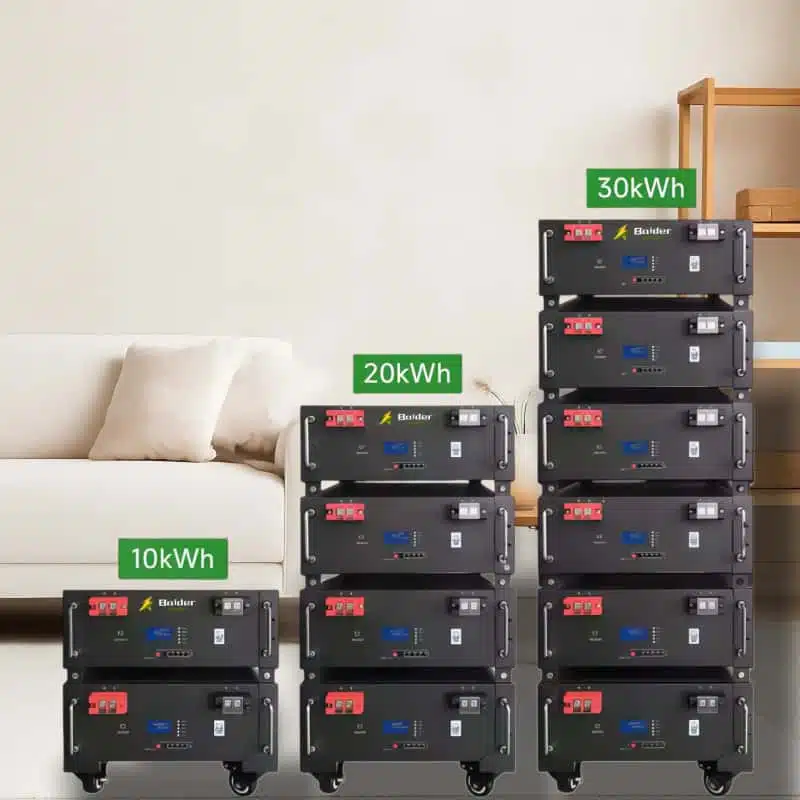
Balder Power Server Rack LiFePO4 ESS Battery is a flexible and scalable energy storage solution, designed for easy installation with either cabinets or brackets. It supports high current discharge, is compatible with solar inverters, and offers an intelligent BMS for optimal performance. With up to 6000 charge cycles, it ensures long-lasting reliability and safety. Communication options like CAN, RS485, RS232, Bluetooth, and an LCD display provide convenient monitoring. The LiFePO4 chemistry guarantees excellent safety, making it a perfect choice for hybrid solar systems and large-scale energy storage.
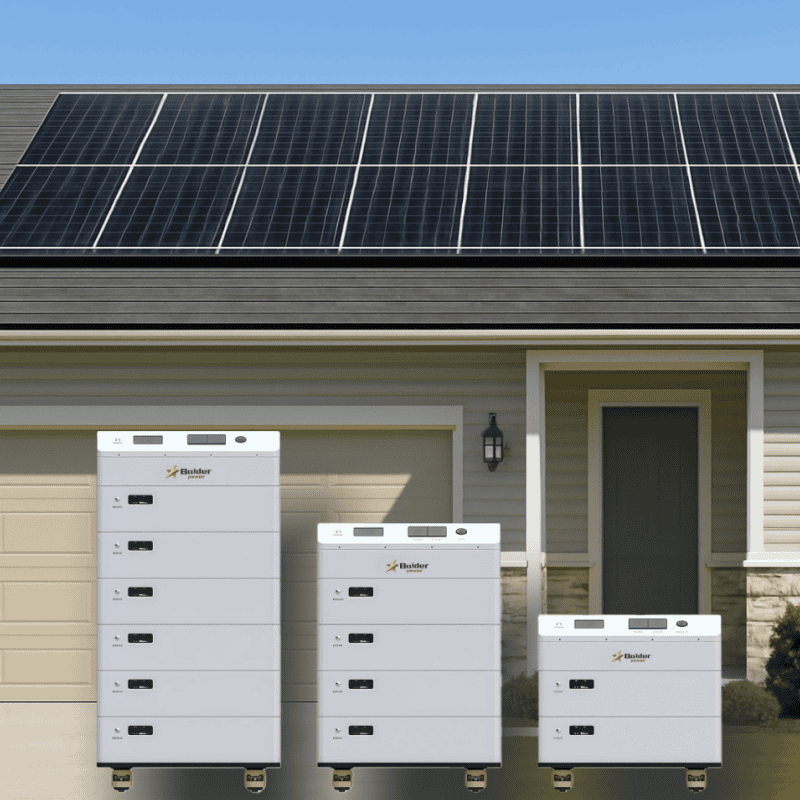
The All-In-One ESS (Energy Storage System) from Balder Power is the ultimate solution for homes and businesses seeking efficient, integrated energy storage. Combining a high-capacity battery, inverter, and battery management system in one compact unit, it provides seamless power storage, optimized energy management, and reliable backup during power outages. Designed to work with solar power systems, this all-in-one solution allows you to store excess energy generated during the day and use it when needed, helping you reduce reliance on the grid. With various sizes available, the All-In-One ESS is perfect for both small and large-scale energy needs, offering a sustainable, cost-effective, and easy-to-install solution for energy independence.
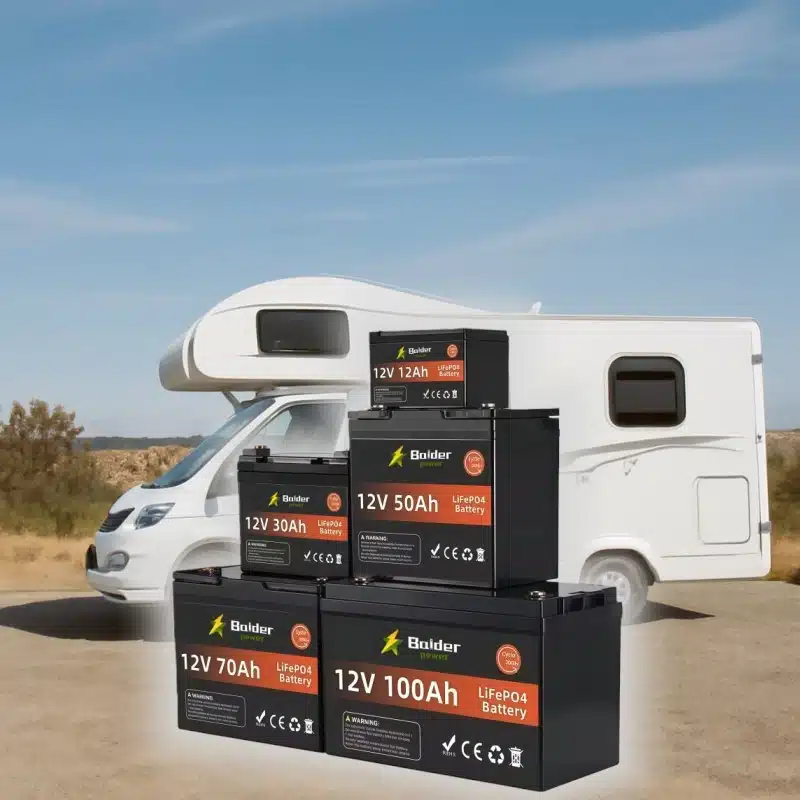
Upgrade to the future of energy storage with Balder Power's Lead Acid Replacement Battery. Designed to replace traditional lead-acid batteries, our LiFePO4 technology offers superior performance, longer lifespan, and enhanced safety. Unlike lead-acid batteries, which degrade quickly and require frequent maintenance, LiFePO4 batteries are low-maintenance, more efficient, and environmentally friendly. Perfect for both residential and commercial applications, these batteries provide reliable, high-performance power storage, reducing your long-term energy costs and environmental impact. Make the switch today for a more sustainable and efficient energy solution.
APP Monitor
- Remote Data Monitoring
- Intelligent Management
- One-click Upgrade

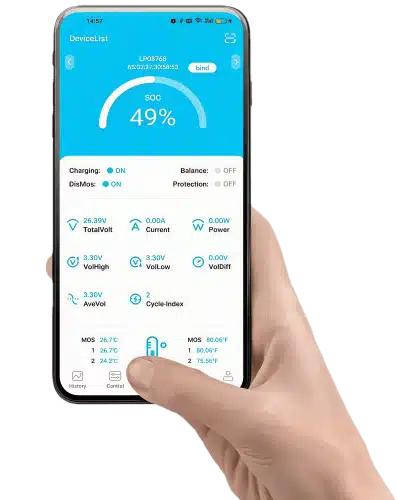
Unmatched Performance and Reliability with Balder Power
FAQs about Home Energy Storage System Battery
A residential energy storage system is a technology that stores electricity for use at a later time, typically through a battery system. These systems are designed to work seamlessly with home electrical infrastructure, often using lithium-ion batteries or similar advanced technologies. They can integrate with renewable energy sources such as solar panels, enabling homeowners to store excess energy during peak production times (e.g., midday) and use it when the sun isn't shining, or during grid outages. These systems provide backup power, reliability, and energy cost savings.
The system works by storing electricity generated from renewable sources like solar panels or wind turbines. Here’s how it works in steps:
Energy Collection: Solar panels collect sunlight and generate DC electricity.
Conversion to AC: An inverter converts DC electricity to AC electricity, which is used by household appliances.
Storing the Energy: Excess energy is stored in batteries after conversion and is kept for later use.
Discharge the Battery: When needed, the energy stored in the battery is converted back from DC to AC to supply electricity to the home.
This allows homeowners to use their stored energy even when the solar panels are not producing electricity, such as during nighttime or cloudy days.
Residential energy storage systems primarily rely on batteries for energy storage. The most common types include:
Lead-Acid Batteries
Pros: Affordable and proven over time.
Cons: Shorter lifespan and lower energy density compared to modern options.
Lithium-Ion Batteries
Pros: Higher energy density, long lifespan, and quick charging. Most commonly used for residential storage.
Cons: More expensive upfront costs, though prices are dropping.
Flow Batteries
Pros: Can be scaled easily and have long lifespans.
Cons: Lower energy density and more complex compared to lithium-ion batteries.
The cost of a residential energy storage system varies based on several factors:
System Size and Capacity: Larger systems with more storage capacity generally cost more. Typical systems range from 4kWh to 15kWh.
Battery Type: Lithium-ion batteries tend to be pricier, though they offer better performance and longer lifespans compared to lead-acid batteries.
Additional Components: The system also requires an inverter, control systems, and installation hardware.
Installation Costs: These can vary depending on complexity and location, including electrical upgrades or additional components needed.
The lifespan of a home battery backup depends on its capacity and the load it is designed to support. For example:
A 20kWh battery can power a 2000W air conditioner for about 10 hours.
A 5kWh battery can support a 500W refrigerator for around 10 hours.
On average, lithium-ion batteries last 10+ years, depending on usage patterns, while lead-acid batteries typically last around 3-5 years.
Installing a solar battery system for your home is generally straightforward, with several options for setup:
Floor-Mounted Systems: These systems can be placed anywhere in the house and don’t require fixed installation.
Wall-Mounted Systems: Can be installed on any wall using a cross-shaped bracket for secure attachment.
Rack-Mounted Systems: These space-saving systems can be installed indoors, with batteries stacked layer by layer.
Stackable Lithium Batteries: Some systems support stacking, which allows for scalability to meet increasing power demands.
Home backup battery systems offer reliable, uninterrupted power and are environmentally friendly, with no emissions. They allow you to store electricity during off-peak hours and use it during peak times, reducing your electricity bills. If you live in an area with unreliable grid power or no grid connection at all, investing in a home battery backup system can ensure you have consistent power.
When choosing a solar battery for your home, consider the following:
Battery Capacity: Look at the capacity, typically measured in Ah (Amp-hours) or kWh (kilowatt-hours). Depending on your needs, you may need a larger capacity.
Lifespan and Warranty: Batteries have different lifespans and warranties. Lithium-ion batteries offer long lifespans (up to 10+ years) and come with extended warranties, while lead-acid batteries have shorter lifespans and warranties.
Charging Time and Method: Consider how long it takes to charge the battery and whether it can be charged using solar panels, the main grid, or both.
Cost: Lithium-ion batteries are more expensive than lead-acid options but provide better quality, longer life, and higher energy density.
Power Reliability: Provides backup during grid outages, ensuring continued power supply for appliances.
Cost Saving: Reduces electricity bills by using stored energy during peak hours, and charging during off-peak times.
Energy Independence: Reduces reliance on the grid, especially when combined with solar panels for generating and storing energy.
Peace of Mind: Ensures you have power during emergencies, avoiding the worry of power cuts or outages.


